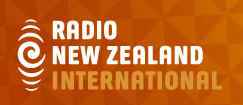- عربي
- 中文
- English
- Français
- Русский
- Español
Radio New Zealand: "Pacific leaders committed to ending child violence". Interview with SRSG Marta Santos Pais

Pacific leaders committed to ending child violence
Updated at 5:04 am on 20 May 2015
Originally aired on Dateline Pacific, Wednesday 20 May 2015
The United Nations says Pacific leaders are showing a strong commitment to ending high rates of violence against children in the region.
Transcript
The United Nations says Pacific leaders are showing they are committed to ending high rates of violence against children in the region.
This week, UNICEF is hosting a three-day conference in Fiji to bring policy makers, civil society groups and government leaders from 14 Pacific countries together to come up with solutions to what it calls an "alarming" problem.
A report titled "Harmful Connections: Examining the relationship between violence against women and violence against children" has been launched at the conference.
It shows 57 percent of women surveyed in the South Pacific have been violently harmed by their partners, and Tuvalu, the Marshalls and Solomon Islands are among the top five countries globally with the highest proportion of adolescent boys who are supportive of wife beating.
And it says violence extends to the classroom as well, with teachers in seven out of 16 Pacific countries allowed to hit children.
Mary Baines asked the Special Representative to the United Nations Secretary General on Violence against Children, Marta Santos Pais about the report.
MARTA SANTOS PIAS: What it emphasises is that the violence that women suffer are in fact affecting the whole family and having a very high impact on children. Both children who witness their mothers being beaten or abused, but also the fact that children are very often also direct victims within the household.
MARY BAINES: I understand this study shows 70 percent of adults in the Pacific admit to using violence to punish their children at home. That's obviously very high. How does that compare to other regions, other areas of the world?
MSP: You know, unfortunately the prevalence of violence against children is very high in all regions of the world. In some countries, it's around 90 percent. So obviously what happens in the Pacific is not very different from what we find in other places. But it is incredibly worrying at the same time because thinking that such a high rate of children suffer the impact of violence on a regular basis is very worrying. The impact of violence stays with children for many years, very often throughout their adult lives, sometimes being transmitted across generations is even more worrying, of course. The facts that violence affects the mental and physical health of children, their performance in school, their ability to relate to adults, to trust others. The fact that it sometimes leads to risky behaviour, for instance, addiction to alcohol or drugs. The fact that later in life may generate involvement in criminal activities shows that we are talking about a phenomenon that is not only worrying when it happens but may have a very high cost for society as a whole. And for this reason one of the important aspects that this study being launched emphasises is again the fact that this is not inevitable, it can be prevented through strong information and awareness raising campaigns, through investment in the way the topic is addressed within schools, the way that we encourage the sharing of responsibilities between men and women, boys and girls, all of that helps to change social norms that are so deeply rooted in all of the societies and also in this region and can help to create a sense of respect and zero tolerance to any form of violence or abuse.
MB: So this week's conference, what is hoped will be achieved?
MSP: Well, the first thing is to help countries in the region to realise that violence against children is a concern that is shared by all of them, and all of them have been working to adopt measures that can help prevent and address violence against children. The second objective is certainly to document and identify good practises, positive experiences that can help governments inspire better approaches and measures to address violence against children. And thirdly we hope each national delegation can leave the conference with a roadmap for what they are going to be putting in place, the most important and urgent measures that will help them to accelerate progress in this area. So we are talking about anticipated reflections on what pieces of legislation can be improved, how can the legislation in each and every country prohibit all forms of violence against children, from the school to care institutions, to justice institutions to the home itself. And in this regard as you know in the whole of the region there is only one country with the legislation of this sort, and that is exactly New Zealand. We have of course some countries with important legislation to prohibit corporal punishment within the schools, but others have just a policy towards the same goal, that is not mandatory, and therefore leaves room for interpretation that it is okay to in a way use discipline that may be violent in the school or even more accepted within the home. So legislation will be a big portion we hope arising from this conference. The conference being held here in Fiji will help the nations in the Pacific region anticipate how they are going to implement the global development agenda and how this region can be a reference for countries in other parts of the world. We feel there is such a golden opportunity to make a difference in this region and to be contagious of change in other regions of the world.

